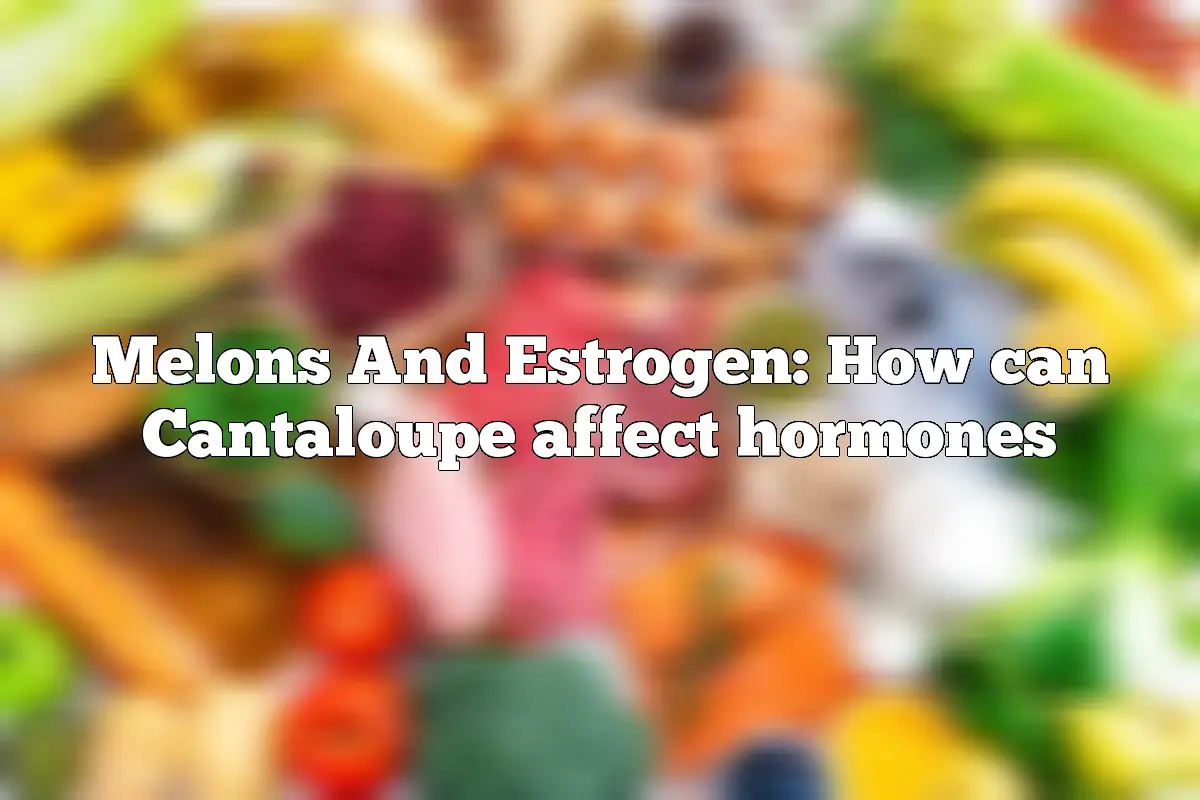Melons And Estrogen: How can Cantaloupe affect hormones
Most often than not, people with hormone imbalances and people that try to maintain their body in a healthy state will pay attention to the foods they eat, giving birth to one of the most important questions (no pun intended) : “Will this Cantaloupe affect my estrogen levels ? and if so, how ?”
Before we get into the effects of Melons on your estrogen levels, we need to understand what estrogen really is.
What is estrogen and how does it affect your body ?
Estrogen is one of the hormones that promotes both reproductive and sexual development.
While a hormone like estrogen will always be present in both men and women of all ages, women that are in their reproductive age will have much higher levels.
Estrogen promotes the development and maintenance of female characteristics, it also helps you keep a regulated menstrual cycle, which is why it’s beneficial to ask yourself questions like : how will this Cantaloupe affect me ?
Nevertheless, estrogen levels decline throughout menopause, leading to symptoms like night sweats and hot flashes, for this reason we need to look at two important definitions before learning about the effects of Melons.
What are Phytoestrogens ?
Phytoestrogens are compounds that occur naturally in plants (fruits, veggies, grains, etc.), their structure is similar to estrogen, consequently they have the ability to bind to the same receptors as estrogen.
When eating phytoestrogens, our body can respond as if it’s our own natural estrogen.
What are Lignans ?
Lignans are a category of phytoestrogen that is most often found in grains, nuts, seeds, tea, plants and wine. Their most beneficial quality is their antioxidant effect. Bacteria that naturally occurs in your body can convert lignant into estrogen.
The effects of Melons on your estrogen levels
Q : Are Melons / is cantaloupe high in estrogen ?
A: At the moment of this post, there are no studies that link honey melons and estrogen levels.
Q : What does Cantaloupe do to hormones ?
A: The succulent flesh of cantaloupe contains easily absorbable Vitamin A, known to enhance thyroid performance and regulate hormones. This contributes to the prevention of weight gain, skin issues, and inflammation.
Q: What can Melons do to females ?
A: Cantaloupe contains essential nutrients for cardiovascular well-being, including fiber, potassium, and vitamin C. Potassium aids in reducing elevated blood pressure, a risk factor for heart disease, while fiber assists in lowering “bad cholesterol” levels and maintaining stable blood pressure.
Q: What can Melons do to males ?
A: Cantaloupe contains essential nutrients for cardiovascular well-being, including fiber, potassium, and vitamin C. Potassium aids in reducing elevated blood pressure, a risk factor for heart disease, while fiber assists in lowering “bad cholesterol” levels and maintaining stable blood pressure.
Q: Why is it good to eat Melons ?
A: Cantaloupe contains essential nutrients for cardiovascular well-being, including fiber, potassium, and vitamin C. Potassium aids in reducing elevated blood pressure, a risk factor for heart disease, while fiber assists in lowering “bad cholesterol” levels and maintaining stable blood pressure.
Q : What are the side effects of consuming Melons ?
A: Excessive potassium levels in your blood can elevate the risk of a heart attack. Additionally, consuming an excessive amount of cantaloupe might negatively affect your digestive system, leading to diarrhea, abdominal cramps, and other gastrointestinal issues.
What do Melons contain ?
100 grams of raw Melons provide :
- Calories: 34
- Carbs: 8.16 grams
- Fiber: 0.9 grams
- Protein: 0.84 grams
- Fat: 0.19 grams
- Vitamin C: 41% of the Daily Value (DV)
- Vitamin A: 19% of the DV
- Potassium: 6% of the DV
Are phytoestrogens and lignans dangerous ?
Phytoestrogen-rich foods can usually be safely consumed in moderation, as the benefits will likely outweigh the potential risks.
Also, contrary to what most people think, it has been demonstrated in studies that phytoestrogens have no effect on human male sex hormones.
The bottom line
Phytoestrogen is easy to find in a huge variety of plant foods.
In order to boost your estrogen levels, you can moderately incorporate phytoestrogen-rich foods into your diet.
In most cases, there are either no risks or the benefits outweigh the potential risks.
Eating Melons in moderation is unlikely to harm you.
